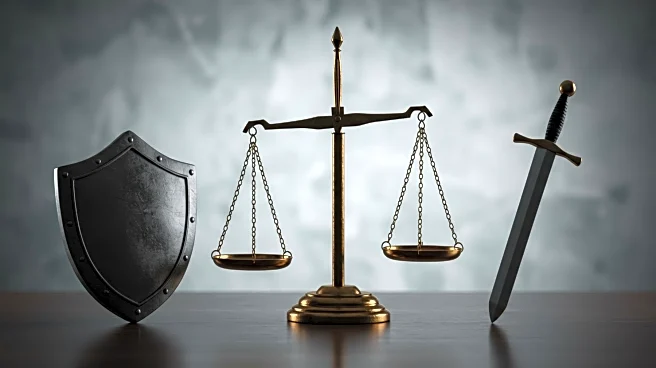What is the story about?
What's Happening?
The mother of the late rapper T-Hood is disputing claims that the shooting of her son was an act of self-defense. T-Hood, known in Atlanta's underground hip-hop scene, was shot and killed at his home in Snellville, Georgia. The incident involved Ky Frost, the son of 'Love and Hip Hop Atlanta' stars Rasheeda and Kirk Frost, who has been named as a suspect. The shooting reportedly followed a domestic dispute, although Kelsie Frost, Rasheeda's daughter and T-Hood's girlfriend, has denied involvement in the altercation. T-Hood's mother has taken to social media to refute the self-defense narrative, stating that her son was shot in the back while walking away. The Gwinnett County police are investigating the case, but no charges have been filed yet.
Why It's Important?
This case highlights the complexities and challenges in determining self-defense in domestic disputes, especially when public figures are involved. The incident has sparked significant attention on social media, with various narratives emerging. The outcome of this investigation could have implications for how similar cases are perceived and handled legally. It also underscores the impact of public opinion and social media on legal proceedings, as family members and involved parties use these platforms to share their perspectives and counter narratives. The case could influence public discourse on self-defense laws and their application in domestic violence situations.
What's Next?
As the investigation continues, the Gwinnett County police will likely gather more evidence and testimonies to determine whether charges should be filed. The public and media attention may pressure law enforcement to expedite the investigation. The involved parties, particularly the Frost family, may face increased scrutiny and public pressure. Legal experts and advocacy groups might weigh in on the case, potentially influencing public opinion and legal outcomes. The case could also prompt discussions on the role of social media in shaping public narratives and its impact on legal processes.















